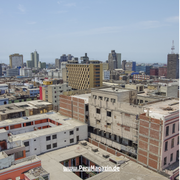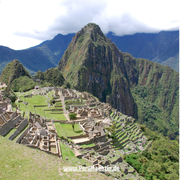Wiracocha was a very important god for the Incas, a people who lived in South America a long time ago. For the Incas, Wiracocha was the creator of all things. They believed that he made the universe, the stars, the sun, the moon, and even people. Wiracocha was very powerful, and people had great respect for him.
How Wiracocha Created the World
Legend has it that in the beginning there was only darkness and chaos. Then Wiracocha came and began to create the world. He formed the sky, the earth and the water. He created the sun so that it would be light and the stars so that the nights would shine beautifully. After he had made the world, he formed the first people out of stone.
The first people that Wiracocha created did not live according to his rules. Therefore, he was not satisfied with them and caused a great flood that washed them all away. Then he made new people who were better able to live together and respected the laws.

Wiracocha as a teacher
After creating the new world, Wiracocha went on a long journey. He traveled through the mountains and valleys of the Andes to help people live better. He showed them how to build houses and cultivate their fields. He taught them how to make tools and how to live peacefully with one another. He also taught people how to worship the gods and how to work together to live a good life.
Sometimes Wiracocha disguised himself as an old man in ragged clothes. He did this to see how people reacted to him. He rewarded those who were good to him. He punished those who were bad to him. Wiracocha wanted people to be kind and fair to each other.

What Wiracocha looks like
The Incas often depicted Wiracocha as a powerful man who wore a beard. This was unusual because the Incas themselves did not have beards. This was to show that Wiracocha was special and different from humans. In many pictures he is seen with a staff in each hand. Sometimes he also holds lightning bolts in his hands, which are meant to show his power over the weather.
A famous depiction of Wiracocha can be found in Tiwanaku, a very old city in what is now Bolivia. There is a large stone gate, the "Sun Door", on which Wiracocha is depicted. He is depicted surrounded by rays and flying creatures. This shows that he was the god of light who brought life to earth.
The Return of Wiracocha
An interesting legend tells that Wiracocha disappeared at some point after his journey across the sea. He told people that he would come back one day. This hope that Wiracocha could return always remained in people's hearts. Many Incas believed that they would see the great creator god again.
Later, when the Spanish came to South America, some Incas believed that these strange men might have something to do with Wiracocha. The Spanish had beards, just like the depictions of Wiracocha. This led to the Incas initially being nice to the Spanish and trusting them. Unfortunately, the Spanish took advantage of this trust, and this became a big problem for the Incas.
Wiracocha and Nature
For the Incas, Wiracocha was not only the god who created everything, but also the one who kept nature in balance. They believed that the world was only in order if people treated nature well and lived according to the laws that Wiracocha had given them. Everything in nature - the mountains, rivers and lakes - was important because Wiracocha had made it. The Incas therefore paid great attention to their surroundings and tried to live in harmony with nature.
Special places such as Lake Titicaca, the high mountains of the Andes, and the ruins of Tiwanaku were considered sacred by the Incas. These places represented the power and creation of Wiracocha and reminded people that they were part of a larger world that Wiracocha had created.
Wiracocha was a very important god for the Incas. He created the world, the sun, the stars and people. He helped people live better by teaching them how to build houses, cultivate fields and live in peace with each other. The Incas honored him and believed that he would return one day. Wiracocha taught people to be good to each other and to nature and this was an important rule for the Incas' lives.






